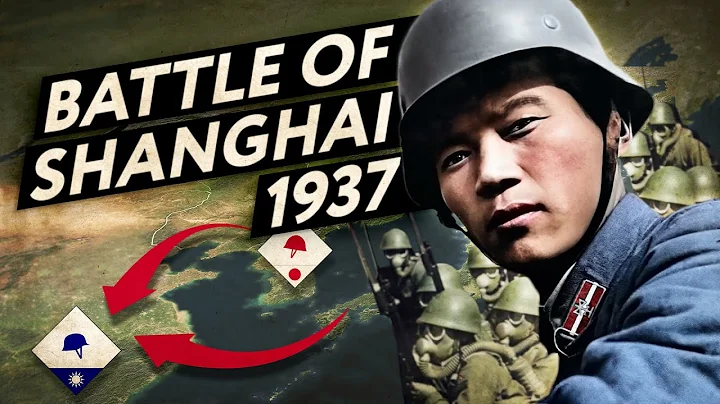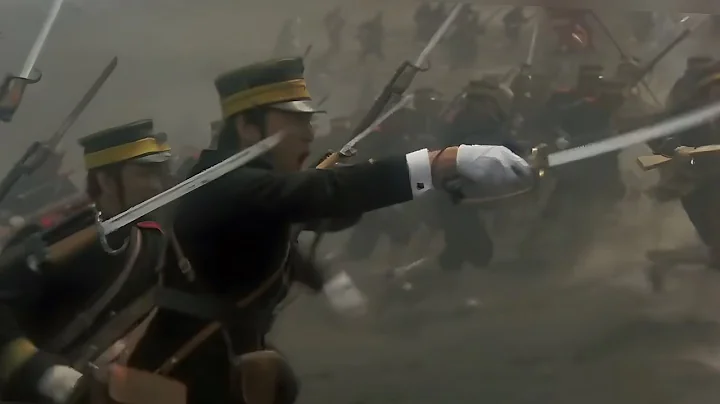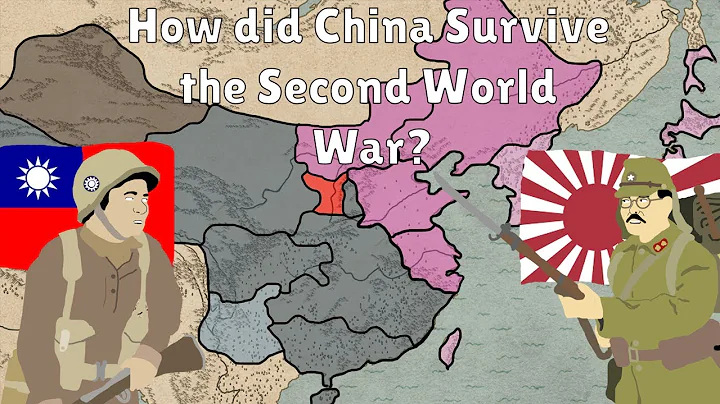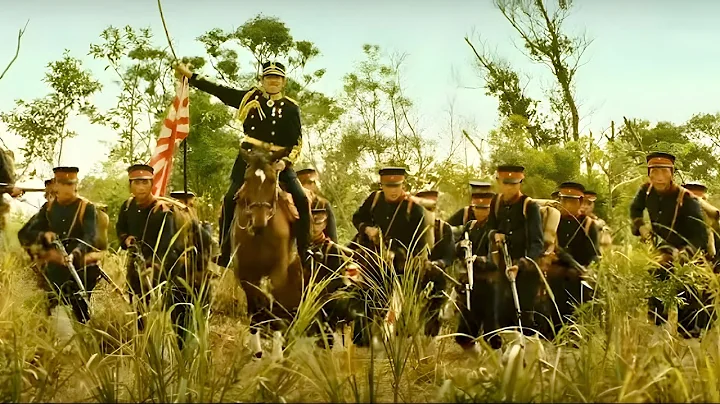The Sino-Japanese Sino-Japanese Sino-Japanese Sino-Japanese Sino-Japanese War of 1895 declared the Qing Dynasty's failure in the naval battle at the cost of the capsize of the entire Beiyang Fleet. What followed was a heavy blow to the Westernizationists, completely shattering the unattainable dream of "self-improvement and seeking wealth" represented by the Westernizationists represented by Yimin, Zeng Guofan, and Li Hongzhang. The Queen Mother of the West and Li Hongzhang, figures of the Zhuhe faction (the rear party) who then took over the power of the imperial court, reached an agreement to negotiate a peace treaty. The decadent Qing Dynasty made peace with Japan and signed the "Treaty of Shimonoseki". After the signing of the treaty, the Qing government not only faced 200 million taels of silver, but was also forced to cede Taiwan Island and many other islands, greatly deepening the degree of semi-colonialization.

After the signing of the Treaty of Shimonoseki, Japanese armed forces landed on the island and invaded Taiwan. He began to implement enslavement education in Taiwan, which was dominated by aborigines at that time, and brutally suppressed the aborigines who resisted Japan. Unable to endure the long-term oppression and slavery, the indigenous people on the island finally rose up to resist, using their blood and flesh to create a history of resistance to oppression and slavery, just like the Taiwanese version of "300."

The incident happened in Renai Township, Nantou County, central Taiwan Province. After the Japanese army landed on the island, they coveted the central area Wushe occupied by the Ban tribe because it was a vast land with rich resources, including mountains, forests, and mineral deposits. The Japanese soldiers aimed their guns at Wushe, implemented a enslavement education policy for the indigenous people on the island, and brutally suppressed the indigenous people who resisted Japan. At that time, Japan adopted the policy of "using Tibet to control Tibet", allowing indigenous groups that had surrendered to Japan to eliminate other indigenous groups, and allowing some aboriginal groups to join the Japanese police force. They also exploited the island's mineral resources and forced the indigenous people to work. The aborigines have been accustomed to nomadic farming life for generations, and Japanese mining has severely squeezed their living space, which has also gradually increased conflicts between the two parties. In order to eliminate the anti-Japanese sentiments of Taiwan's aborigines, Japan encouraged local Japanese police to intermarry with Taiwan's aborigines. This was Japan's so-called "Harmony with Tibet" policy. However, the Japanese extremely disrespected the Taiwanese aborigines and regarded them as uncivilized "savages". Japan used every possible means to oppress the indigenous residents on the island of Taiwan. It often molested indigenous women and abandoned their wives. Various behaviors intensified the hatred of the indigenous people against the Japanese.

The Japanese ordered to cut down forests in the Wushe area and carry out large-scale construction and construction of Japanese shrines. This move frightened the local Seediq indigenous people, who regarded the forest as a sacred place. Therefore, the Japanese order was rejected. So the Japanese cursed them and tried to make them surrender. These aborigines were so angry that their leader Mona Rudo made up his mind to resist the Japanese.

In early October 1930, the son of Mona Rudo, the leader of Wushe Seediq, held a wedding. At the wedding, Mona Rudo's son toasted to Japanese policeman Yoshimura. Yoshimura overturned the wine cup three times because Mona Ludo's son had cow blood on his hands. This impolite move angered the usually simple and kind-hearted Seediq people, so the Seediq people beat the hateful Yoshimura and drove him out of the village. Mona Ludo had a premonition that something was wrong, so she personally brought a gift to the police station to apologize. However, the Japanese at the police station were arrogant, unreasonable and ungrateful regardless of the merits. They threatened that if the perpetrators were not handed over, the Japanese military police would destroy Seediq's village. In order to provide a place for the nation to survive, and having been oppressed by the local Japanese for a long time, being banned from tattooing, and losing their traditions, Mona Ludo and his tribe decided to "blood sacrifice their ancestors" (出草, after careful planning) Headhunting), for the Wushe Incident.

On October 27, 1930, the Japanese government held the Taiwan Shrine Festival to commemorate the death of Prince Kitashirakawa Nohisa (the younger brother of Emperor Meiji) in Taiwan. The primary school in Wushe area held a sports meeting as usual. The Seediq people believed that this was a good time to launch an uprising, so Mona Rudao led six tribesmen to take advantage of the early morning break while the mountain police and their families were still sleeping soundly. Several teams successively attacked Japanese strongholds and cut off all external transportation and communication equipment.It was not until nearly noon that an elementary school inspector who escaped from the uprising people ran away down the mountain. The uprising in Wushe was not known to the authorities. This incident immediately shocked the Taiwan Governor's Office . The Taiwan Governor-General immediately organized an emergency assembly of troops and went to Wushe to suppress it.

The Japanese government sent several warships and more than a dozen aircraft from the mainland to transport troops to Taiwan. Together with the Japanese navy, army, air force and police stationed in Taiwan, they besieged Wushe and attacked Mahpo and other societies with the support of artillery and aircraft. Relying on the cover of broken walls, the insurrectionary masses fought desperately against the enemy in a hail of bullets, making the enemy pay a heavy price for every step forward. Later, the Japanese army violated international conventions and threw corrosive gas bombs at the indigenous people, causing heavy casualties to the indigenous people.

Mona Ludao commanded the tribesmen to resist desperately. However, due to the huge disparity in equipment between the two sides, he had to lead the young and middle-aged men to retreat to the mountains and forests, and ordered the old and weak of the communities to take refuge in the dense forests. Some old people and women, determined to fight to the end to strengthen their loved ones, hanged themselves in the dense forest in accordance with their own ethnic customs. Seeing that the situation was over, Mona Rudo shot his two grandsons to death in a cave, burned them together with the bodies of his three wives, and then committed suicide. Mona Ludo's body did not completely decompose after his death. Half of it was mummified and was found in 1933. After being exhibited several times, it was preserved at National Taiwan University. In 1973, Acting Dean of the Department of Anthropology of National Taiwan University Li Yiyuan and President Yan Zhenxing wrote to Taiwan Provincial Chairman Hsieh Tung-min, suggesting that the remains should be properly buried. The Taiwan Provincial Government also accepted this suggestion and brought the remains back to Wushe from the Herbarium of the Department of Anthropology on October 24. On October 27, the 43rd anniversary of the Wushe incident, the remains were buried.

"Sedek" means "person" and Balai means "real, real" so the word means "real person".
Finally, it ends with a sentence from Mona Rudo in the movie " Seediq Bale": "If the so-called civilization is to make us grovel, then let me show you the pride of barbarism."






















